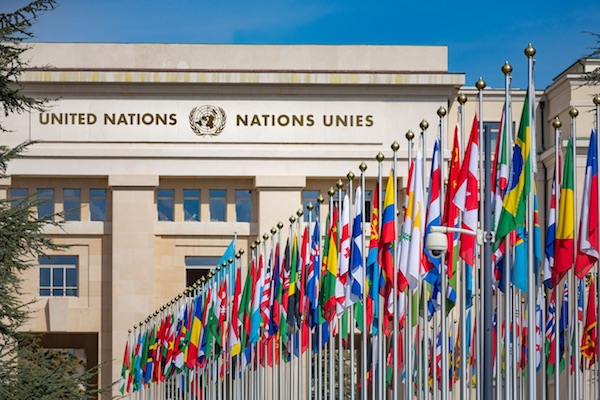
The United Nations should publicly support the “immediate implementation” of an Irish language act for the north of Ireland, a language rights body has told an international forum.
Conchúr Ó Muadaigh, from Conradh na Gaeilge, told the UN’s forum on minority issues that Irish had been repressed by centuries of colonisation. He said his organisation had been repeatedly failed by the British government and the Stormont administration in Belfast.
“It is my honour to be here on behalf of Conradh na Gaeilge, but my expertise comes from being an Irish speaker in a state which has, since its formation in 1921, outlawed, repressed and denigrated our language and frustrated the rights of our community,” he said.
An Irish language strategy, along with a commitment to an Ulster Scots language, heritage and culture strategy, was agreed as part of the New Decade, New Approach deal in January last year.
The British government agreed in June to progress Irish language legislation at Westminster if no progress on the issue had been made at Stormont by autumn.
Last month, more than 40 Irish language groups called on Secretary of State Brandon Lewis to “immediately move” Irish language laws at Westminster.
However, no legislation has emerged.
Mr Ó Muadaigh said Irish activists had felt consistently let down.
Although political parties and the British government try to assure us that such legislation is pending, 16 years of missed deadlines, unfulfilled commitments and false dawns tell us otherwise,” he told the UN meeting.
“Our community is justifiably sceptical of the British government and the political institution’s ability to deliver on language rights.”
He called on the UN to support the immediate implementation of an Irish language act “as a means to facilitate reconciliation and parity of esteem”.
Mr Ó Muadaigh said the UN must also support development of the Irish Medium education sector and issue a press release reflecting those commitments.
“For international law to be adhered to, and agreements honoured, constant vigilance from communities like ours - and forums like yours - is necessary,” he said.
“This is the only way to ensure Irish language speakers in the north of Ireland, and minorities across the world, can effectively challenge hostility, sectarianism and marginalisation.”
![[Irish Republican News]](https://republican-news.org/graphics/title_gifs/rn.gif)
![[Irish Republican News]](https://republican-news.org/graphics/title_gifs/harp.gif)

